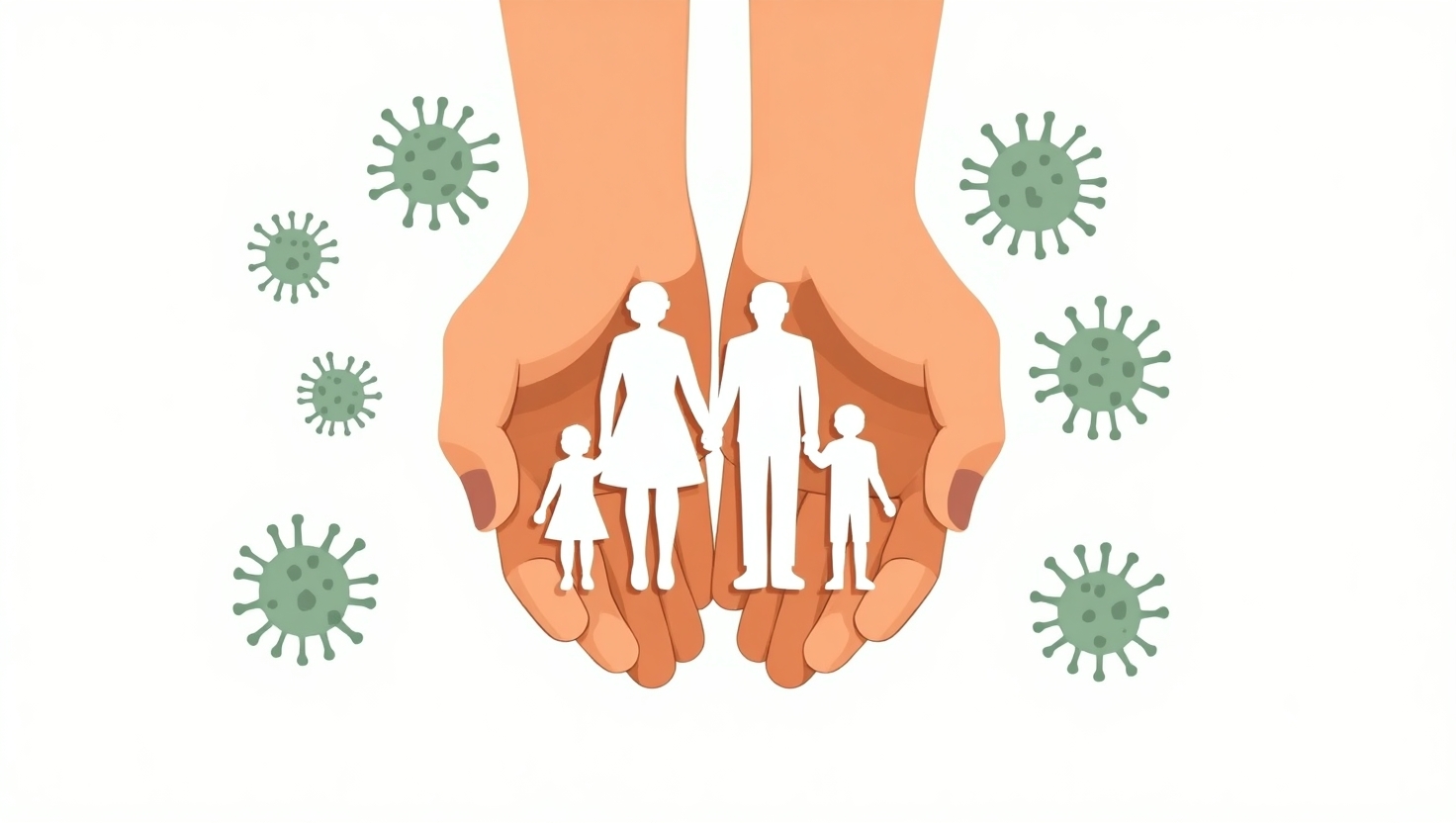
Human Metapneumovirus (HMPV) is an increasingly recognized respiratory virus that poses a significant health risk, particularly to vulnerable populations. In Indonesia, where respiratory infections are prevalent, protecting your family from HMPV requires understanding the virus, its symptoms, and effective prevention strategies.
What is HMPV?
HMPV is a respiratory virus from the Paramyxoviridae family, closely related to respiratory syncytial virus (RSV). It spreads through respiratory droplets, direct contact with infected individuals, or contaminated surfaces. While HMPV can affect anyone, children under five, the elderly, and individuals with compromised immune systems are most at risk for severe complications.
Symptoms of HMPV
HMPV symptoms can range from mild to severe and often resemble those of the common cold or flu. Key symptoms include:
- Fever
- Cough
- Nasal congestion
- Shortness of breath
- Wheezing
In severe cases, HMPV can lead to complications such as pneumonia or bronchiolitis, which may require hospitalization. Recognizing these symptoms early is crucial for timely medical intervention.
Why is HMPV a Concern in Indonesia?
Indonesia’s tropical climate, high population density, and healthcare disparities create an environment where respiratory viruses like HMPV can thrive. Seasonal peaks during the rainy season often coincide with an increase in respiratory illnesses, overwhelming healthcare facilities and putting vulnerable populations at greater risk.
Steps to Protect Your Family
Protecting your family from HMPV involves a combination of preventive measures and awareness. Here are practical steps you can take:
1. Practice Good Hygiene
- Wash hands regularly with soap and water for at least 20 seconds.
- Use hand sanitizer when soap and water are not available.
- Teach children the importance of hygiene to prevent the spread of germs.
2. Maintain Respiratory Etiquette
- Cover your mouth and nose with a tissue or elbow when coughing or sneezing.
- Dispose of used tissues immediately and wash your hands afterward.
3. Clean and Disinfect
- Regularly clean and disinfect frequently touched surfaces, such as doorknobs, light switches, and toys.
4. Avoid Close Contact
- Keep a safe distance from individuals showing symptoms of respiratory illness.
- Avoid crowded places, especially during peak seasons for respiratory infections.
5. Strengthen Immunity
- Ensure your family maintains a balanced diet rich in fruits and vegetables.
- Encourage regular exercise and sufficient sleep to boost overall health.
6. Use Masks When Necessary
- Wearing masks in crowded or high-risk areas can reduce the spread of respiratory droplets.
When to Seek Medical Help
If a family member exhibits severe symptoms such as difficulty breathing, persistent high fever, or extreme fatigue, seek medical attention immediately. Early diagnosis and treatment can prevent complications and improve outcomes.
Raising Awareness
Community education is essential in combating HMPV. Share information about the virus with friends, family, and neighbors to ensure a collective effort in reducing its spread. Schools, workplaces, and community centers can play a significant role in promoting awareness.
Conclusion
HMPV is a growing health concern in Indonesia, but with the right knowledge and preventive measures, you can protect your family from its impact.